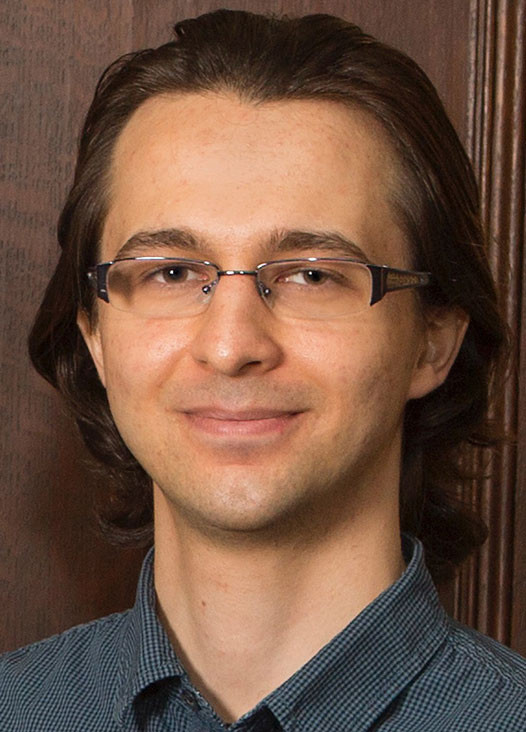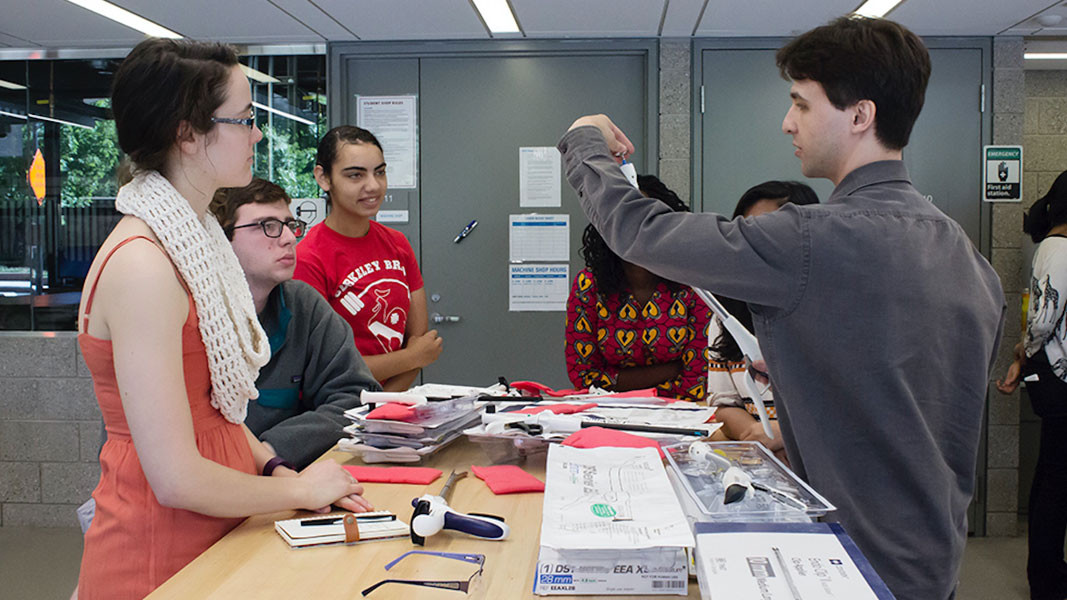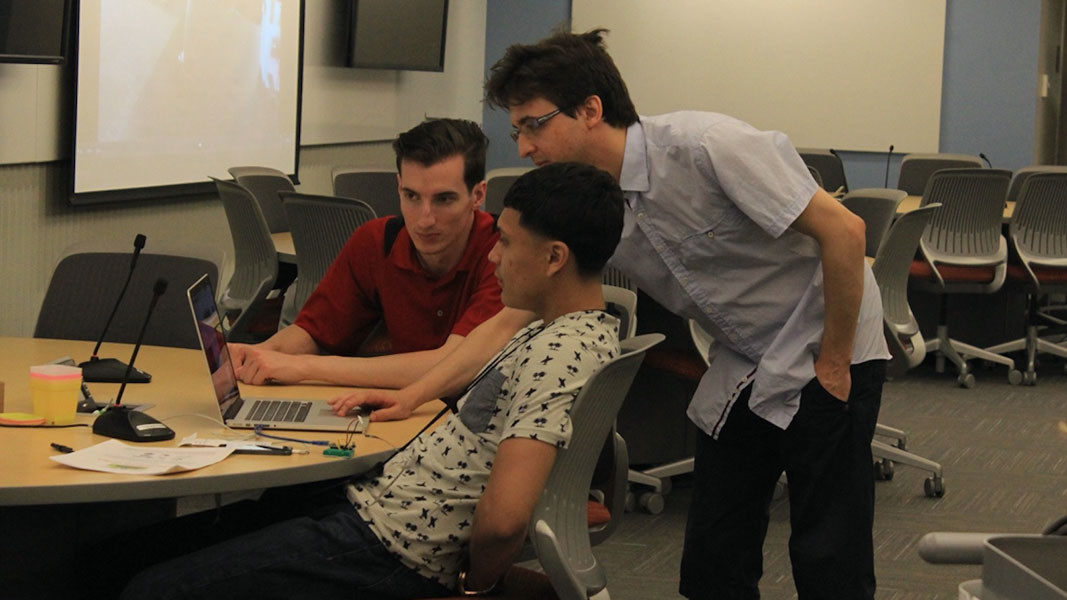He discovered science thanks to two enlightened teachers at primary school. And now that he is working at the pinnacle of academic knowledge he never forgets to give what he has learnt back tothe world. Because knowledge can change the world only if it is shared.
Stefan Krastanov is working on the creation of a quantum computer, he also lectures at Harvard but has never forgotten that he owes his fascination with science to his schoolteachers in Bourgas. At the Vasil Aprilov primary school and then at the secondary school of mathematics and natural sciences he found dedicated teachers and went to his first science classes, winning medals from competitions and Olympiads. Meanwhile he honed his knowledge in the sphere of physics with acclaimed teacher Theodosii Theodosiev, solving problems that are not to be found in any textbooks. After secondary school he tried out several educational systems in Europe, but found the best conditions for science at Yale and Harvard University.
 Most American institutes create space for scientific work but they also make you feel at home, Stefan Krastanov says. They want you to do your research work, and do it well, but they also want you to be part of university culture – that you do volunteer work, that you find the time to talk to the schoolchildren, not just lecture them. Giving back to the world is an essential part of what we do.
Most American institutes create space for scientific work but they also make you feel at home, Stefan Krastanov says. They want you to do your research work, and do it well, but they also want you to be part of university culture – that you do volunteer work, that you find the time to talk to the schoolchildren, not just lecture them. Giving back to the world is an essential part of what we do.
The young quantum physicist has found a way to express his gratitude for the knowledge gleaned and the opportunities given – he works with children, teaching physics mostly in the poorer neighbourhoods. He also helps teenagers in the town where he grew up when he is able to return to Bulgaria for short spells. But the most important thing he wants to teach youngsters on either sides of the ocean is that understanding the world is possible, even if you are not a physicist.
Stefan Krastanov explains quantum physics, which most people find impossible to comprehend, in simple terms: It tells us what the fundamental limitations that the universe has imposed on us are. And adds that if something can be achieved using the laws of quantum physics then, most probably, it cannot be achieved any other way.

Quantum physics overcomes some of the limitations we think are immutable, he says further. But more importantly, to my mind, it points to the limitations that are insurmountable. And the question is what we could do when we have the most powerful computer which the laws of the universe allow us to put together, and how these laws set down limitations to technologies.
Medicine could be one of the spheres of application of the quantum computer.
With a quantum computer which makes use of the laws of quantum physics we can simulate medicines and materials it is too hard to create in a laboratory, Stefan Krastanov explains. This means we will be able to check whether a new medicine or a new material will actually work before committing huge sums for experiments. In this way we could create materials that are sturdier, lighter and create energy from the sun. At the moment we have a computer that resembles a quantum computer – it demonstrates many of the phenomena expected of it but still has too few quantum bytes to be of practical use. So that we shall need hundreds of thousands of these quantum bytes which it is so difficult to have functioning simultaneously at this point. But I am an optimist and I hope that within 10 years we shall have a quantum computer capable of simulating new materials, and soon after – new medicines.

Technologies should be created in such a way as to help the world and safeguard it, the scientist says. And if people want to inhabit a more spiritual and ethical environment they should know that there is a way to do that - by working for a better world, he says.
Photos: private library
Robert Joseph Miller, Bulgaria’s Honorary Consul in Nevada, was awarded the prestigious “Golden Laurel Branch” of the Ministry of Foreign Affairs for his exceptional merits in maintaining the diplomatic relations between the US and Bulgaria. The award..
The cool autumn evenings give us a reason to immerse ourselves in the cosy atmosphere of restaurants in Sofia and try new flavours inspired by global culinary trends. Leading Italian travel platform praises Sofia in autumn..
At 04:00 Bulgarian time on October 26, 2025, we must turn our clocks back one hour. This means one more hour of sleep, but it does not eliminate the stress for the body as a result of the change in the biological schedule,..
On 27 October, the first meeting of Action CA-24150 “Values in Turbulent Times: Navigating Social Change and Challenges (VISTA)” took place in Brussels...
In the summer of 2014, photographer Philippe Bazin and philosopher Christiane Vollaire traveled around Bulgaria, investigating a series..
The European Commission praise s Montenegro’s progress toward EU membership North Macedonia needs decisive action and reforms to begin..

+359 2 9336 661
